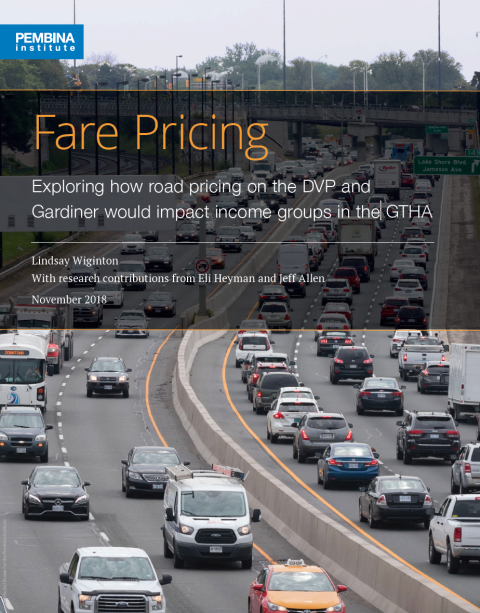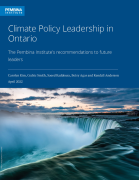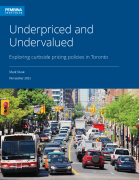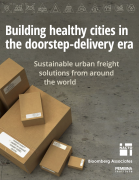Road pricing is a way of pricing mobility more fairly. It reduces congestion by providing incentives that spread out the use of the roads and encourage the use of alternative modes like transit. This shift helps to reduce air pollution and greenhouse gas (GHG) emissions and raise revenue for public investments in infrastructure, such as transit.
Equitable access to transportation is a backbone of strong, sustainable communities. One important concern about road pricing that has been raised by stakeholders is its potential to add to the financial burden of low-income residents. Research on the potential impact of road pricing on low-income communities is scarce, leaving policymakers without essential insights needed to design good policy.
This study examined which income groups would be impacted by the City of Toronto’s 2016 proposal to apply a flat highway toll of $2 on the Don Valley Parkway (DVP) and Gardiner Expressway (Gardiner). We find that a majority of GTHA commuters who would be impacted have household incomes above Toronto's median. However, we also find that without mitigation measures, the toll would represent a higher financial burden on those lower-income households that would be impacted.





